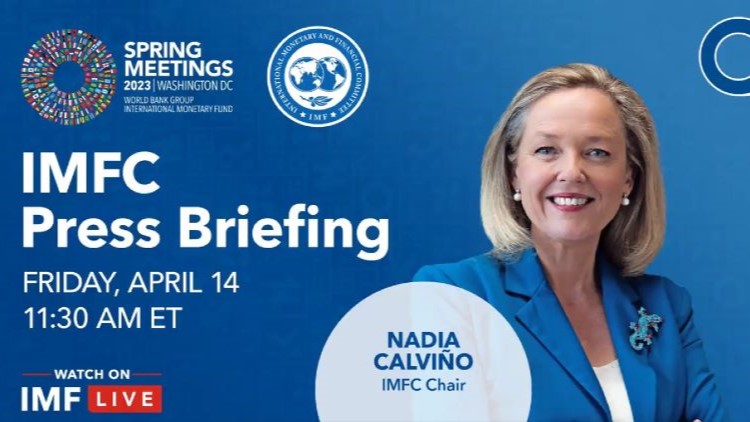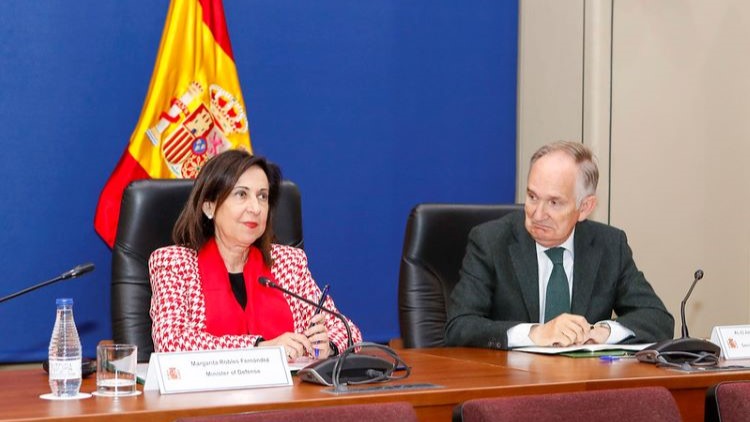The Diplomat
First Vice President and Minister of Economic Affairs and Digital Transformation, Nadia Calviño, lamented yesterday in Washington the inability of the 24 member states of the International Monetary and Financial Committee (IMFC), the governing body of International Monetary Fund (IMF) policies, to agree on a joint communiqué on the Russian invasion of Ukraine.
“We have done everything possible to agree on a communiqué, but, unfortunately, it has not been possible,” Calviño said during a press conference in her capacity as IMFC chair. This is the third time that the IMFC has been unable to agree on a joint text on Ukraine. The Committee, made up of the ministers or central bank governors of member countries (including Russia and China), meets twice a year.
According to Calviño, “there have been very productive conversations and constructive discussions, there has been agreement on almost everything”, but “the only element on which there was no consensus was precisely the message agreed in Bali by the (G20) leaders to refer to the war”. At that meeting, the G20 leaders (among whom neither China nor Russia were present in person) blamed the conflict in Ukraine for inflation, misalignments in the supply chains and the increase in food and energy insecurity.
In any case, as Calviño assured in her final statement as chair -which includes the points of consensus and explains the reasons why a final communiqué was not agreed upon-, “most members strongly condemned the war in Ukraine and stressed that it is causing immense human suffering and exacerbating existing fragilities in the global economy, restricting growth, increasing inflation, disrupting supply chains, increasing energy and food insecurity and raising risks to financial stability.” However, she added, there were also “other views and different assessments of the situation and sanctions” on Russia.
Although the IMFC “is not the forum to solve security problems,” these problems “can have significant consequences for the global economy,” Calviño warned. “The war in Ukraine continues to inflict great economic and humanitarian damage and remains the main source of uncertainty,” she continued. “As the war progresses, obviously the impact on the economic situation is being felt around the world,” she added.
On the other hand, the vice president said that the “encouraging element” of the meeting was “the unanimous agreement on the core issues of the IMF and, in particular, on the need to ensure that the global financial safety net works for the most vulnerable countries.”
At the same press conference, IMF Managing Director Kristalina Georgieva also regretted that there was no joint statement and encouraged monetary authorities to continue to fight inflation, “safeguard financial stability” and increase resources for the Poverty Reduction and Growth Facility, “an instrument that has proven useful in providing interest-free support to low-income countries and is in record demand now that interest rates are high”.







